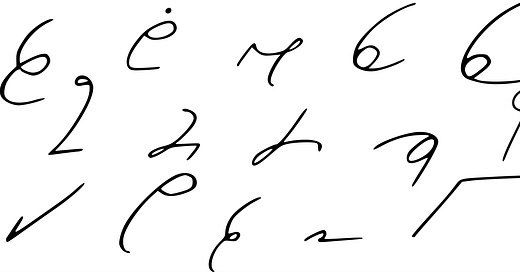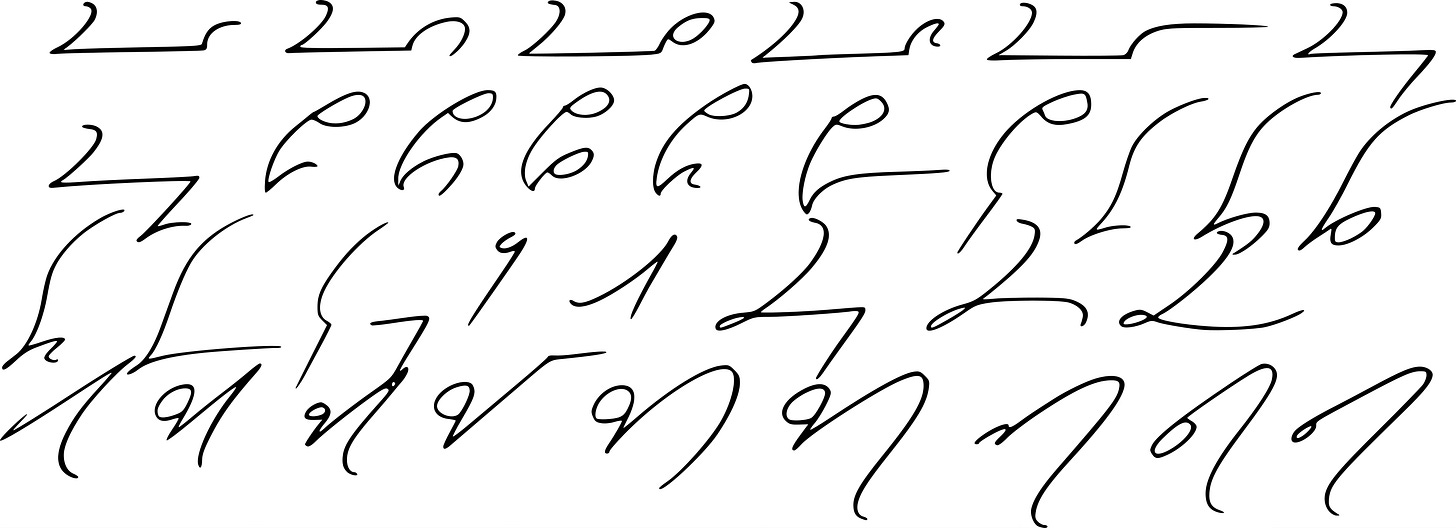Solutions to Lesson 6: Downward Strokes Practice + New Phrasing Principles
Unlocking the Downward Strokes and Translations
Welcome back to the Learn Gregg Shorthand project! Just getting started with Gregg Shorthand? Check out the Archive and begin with Lesson 0.
Let’s check our work from yesterday’s assignment.
Let’s review those P/B, F/V, and Sh/Ch/J Combos:
Paper, happen, trip, bear, bail, free, frame,
even, finish, check, catch, age, page, before, much,
should, about, people, one, Dear Madam.
Phrases that contain the word “been”, are expressed with the “b” stroke in Gregg
Had been, have been, I have been, you have been, have not been, I have not been,
you have not been, has been, it has been, there has been, what has been.
Phrase Drill
From the, from this, from that, from those, from them, from which,
from which the, about the, about this, about that, about those, about them, about which, before the, before this, before that,
before those, before them, by which, in which, of which, and which, very much, very good, very well,
should be, I should be, he should be, I should not, I should have, I should have been, you would have been, I would have been, he would have been.
When “to” comes first in a phrase, it can be represented with the Shorthand for “t”
To be, to have, to pay, to fill, to plan, to blame, to form.
Homework:
Translate all the above examples and the following:
(222 standard words) Dear Madam: Our people are in the habit of helping with the welfare of a neighbor in need, and they have been very good when there is ever a welfare campaign to put over.
Keep reading with a 7-day free trial
Subscribe to The Learn Gregg Shorthand Project to keep reading this post and get 7 days of free access to the full post archives.








